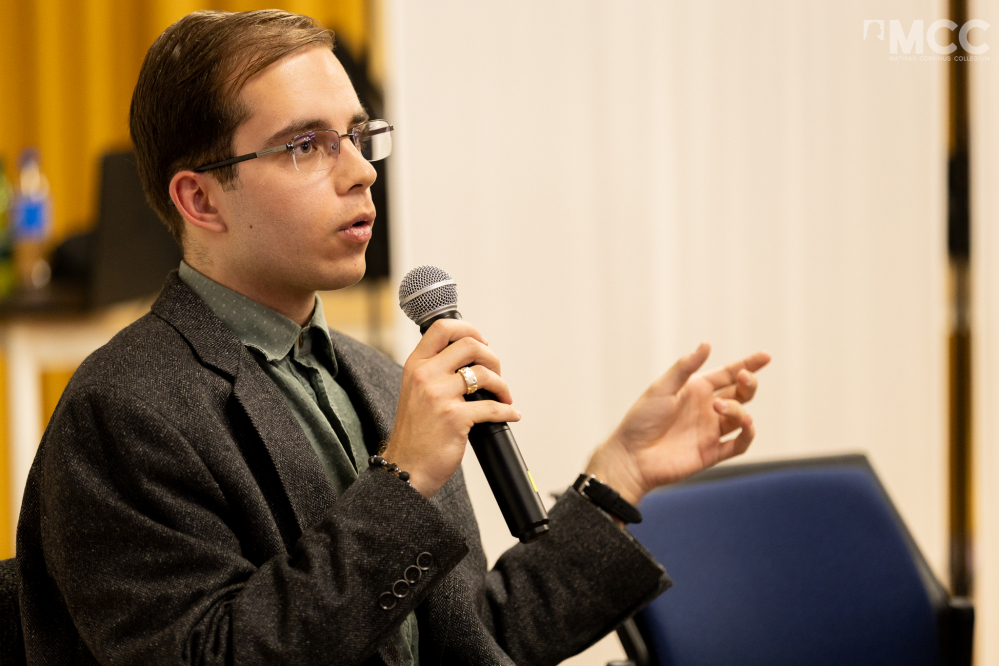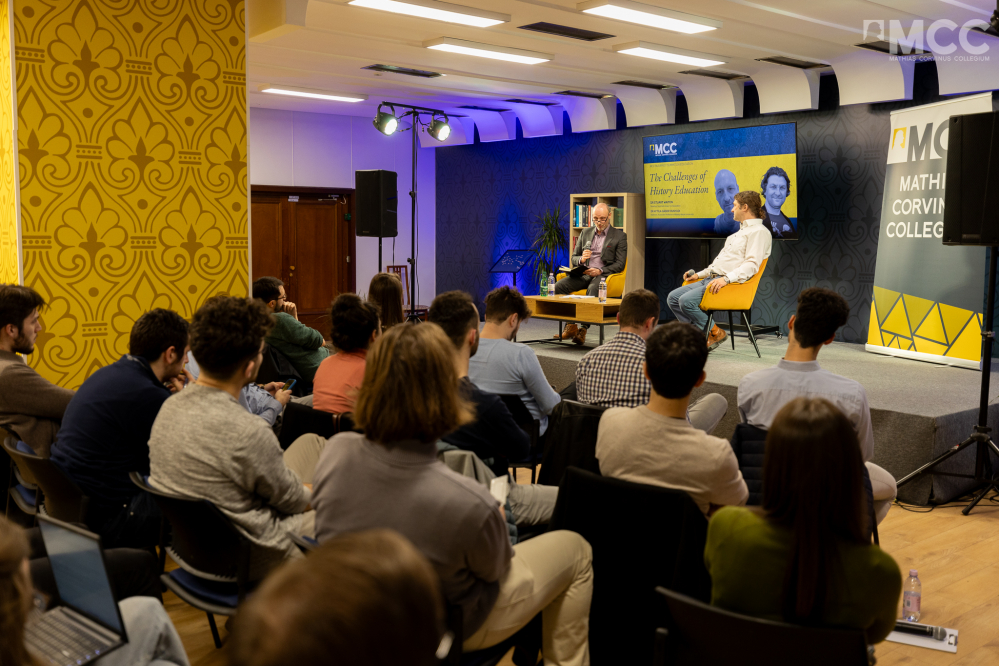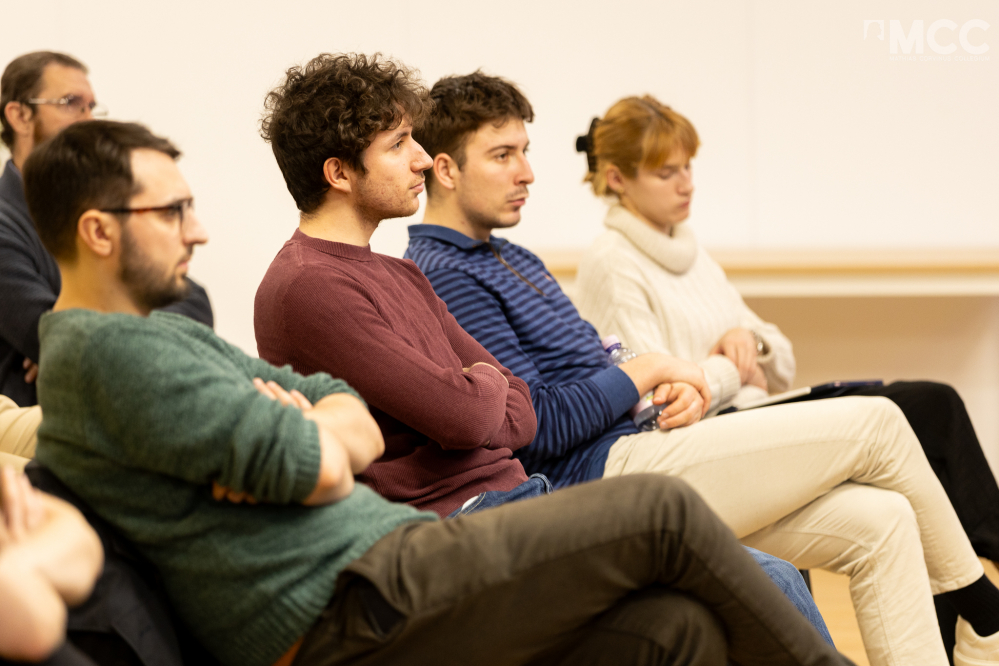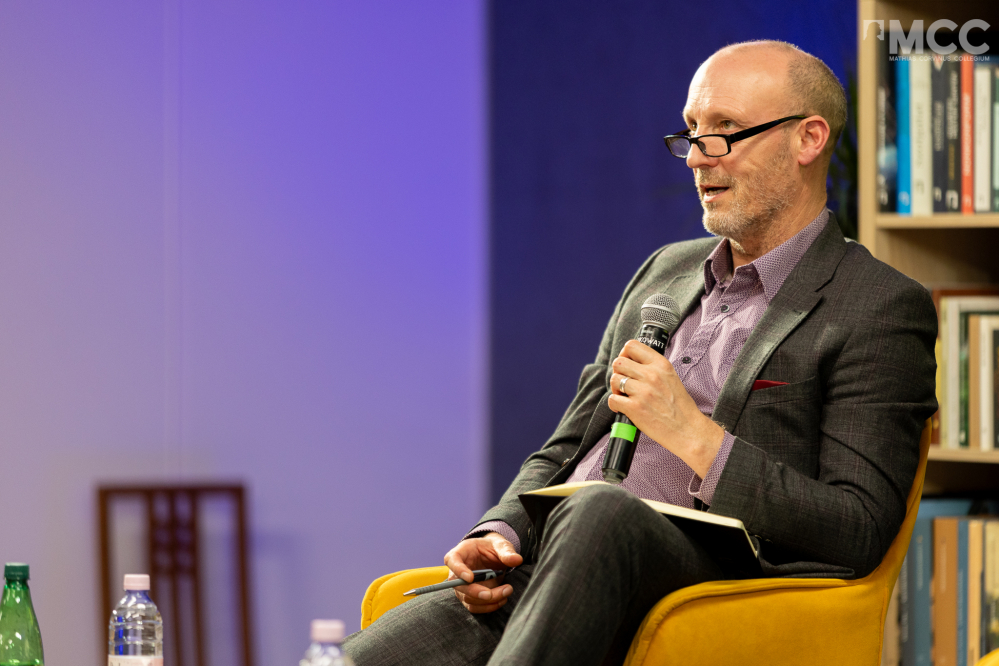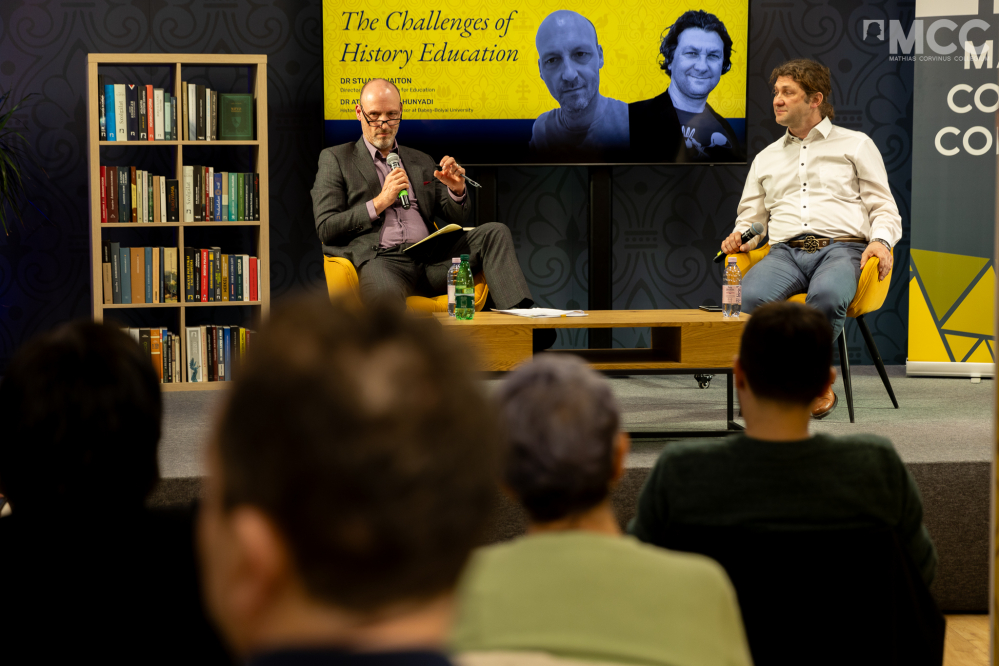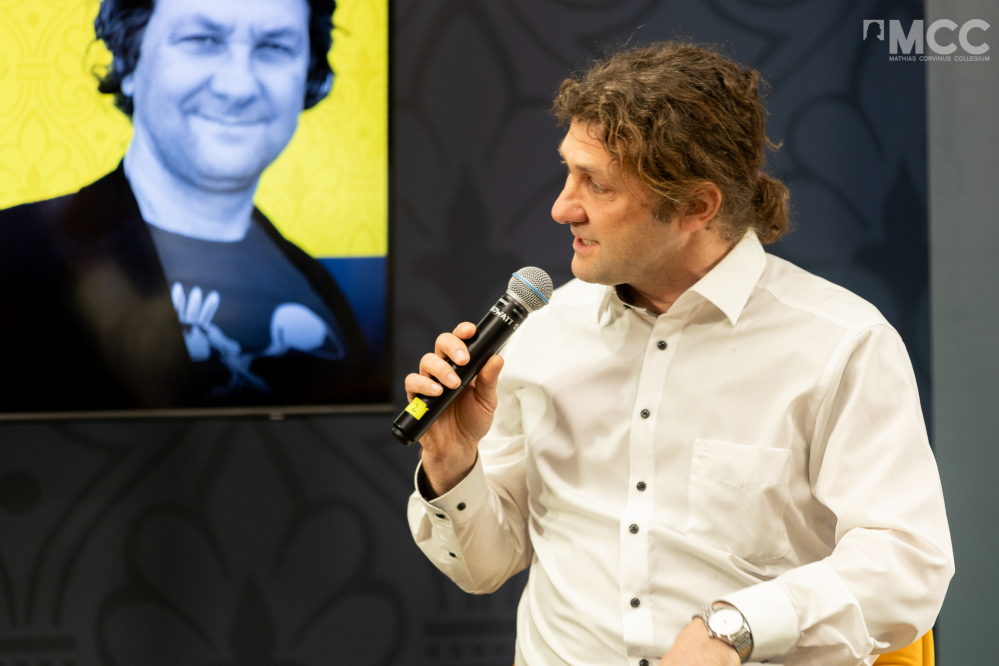Reading time: 3 minutes
How can we teach history in a religious Eastern Europe, where nationalities and national identities clash, and everyone has their own agenda when it comes to forming the identity of future generations? Stuart Waiton, director of the Scottish Union for Education and Attila Gábor Hunyadi, associate professor at the Faculty of History and Philosophy at Babeş-Bolyai University debated this question at on the 1st of March at the MCC center in Kolozsvár/Cluj-Napoca. The event is part of the MCC Budapest Summit on Education.
The event was opened by Botond Balázs, pupil of MCC’S University Program and student of history, after which the invited speakers discussed whether it’s worthwhile to teach history in public schools, and if so, what is the correct way of doing it.
Stuart Waiton’s main areas of interests include the politics of antisocial behaviour, the changing nature of politics beyond left and right and the construct of hate crimes. Some of his previous works include titles such as Scared of the Kids and The Politics of Antisocial Behaviour: Amoral Panics, while his latest book is Snobs’ Law: Criminalising Football Fans in an Age of Intolerances. He is the founder of the Scottish Union for Education. He opened his lecture in Kolozsvár/Cluj-Napoca by discussing today’s identity politics, after which he emphasised the importance of history education.
We are living in an era where we psychologise everything, including society itself. We are becoming more and more individualistic, turning away from the collective and focusing more on our own individual inner world – this is also true when it comes to how we view history. There is a tendency for a declining sense of history, knowledge of history and a declining sense of understanding of the importance of knowledge itself. Waiton theorises that a shift took place at the end of the Cold War, where suddenly, the market became the most important thing in society, and this – while a positive change on the surface – was the death of politics. He poses the question: if the market is the one that rules, where are the people? There is no more history making potential because history is no longer something that we create, it is something that happens to us passively.
Waiton says history has become one-sidedly negative. He notes that in recent years the concept of a western civilisation has been put into quotation marks, as if something to question and mock. It has an air of cynicism around it, something to be ashamed of by not recognising the merits of the people before us. There is a tendency to take personal responsibility out of the equation and let a third-party resolve conflicts – Waiton calls this the „human resourcification” of society.
Words have more power now than they ever have before, and thus have become a vessel for violence themselves. A new, more limited etiquette has been born in regard to what kind of words we can use with each other and how we can behave around each other. In the same vein he brought up the tendency to change street names and take down statues of controversial, yet prominent historical figures. The speaker thinks that projecting our current moral standards onto the leaders of the past is an impossible concept, that can lead to the infantilisation of our history, which he finds to be Orwellian.
He ended the lecture by offering a few solutions to the question of history education in public schools. Instead of an education system that is riddled with identity politics that focuses on the feelings of students, we need to shift the focus to a knowledge-based learning. A more local perspective would also be useful. People should know that both they and their history matters.
